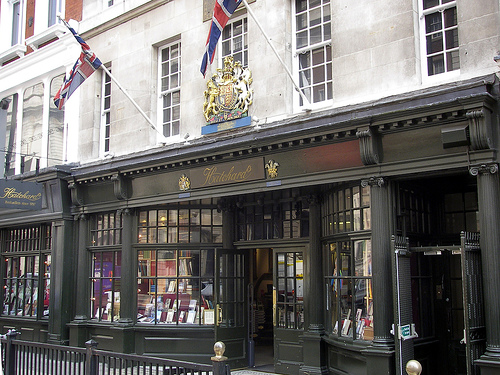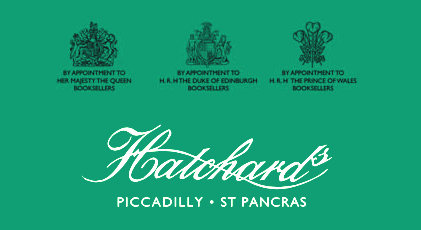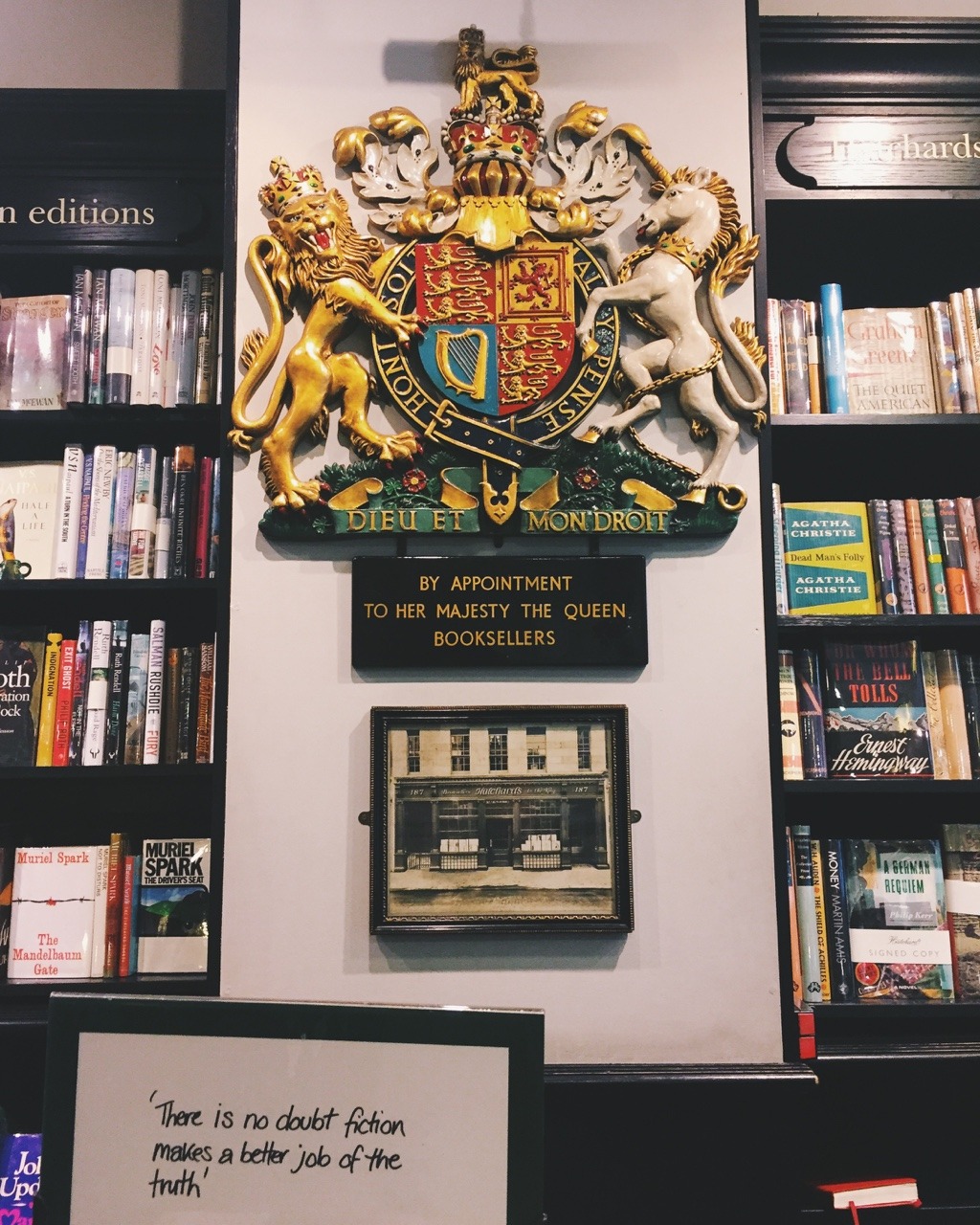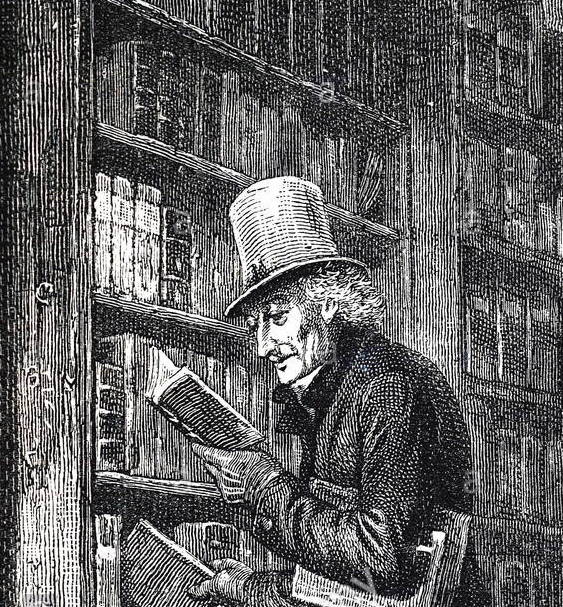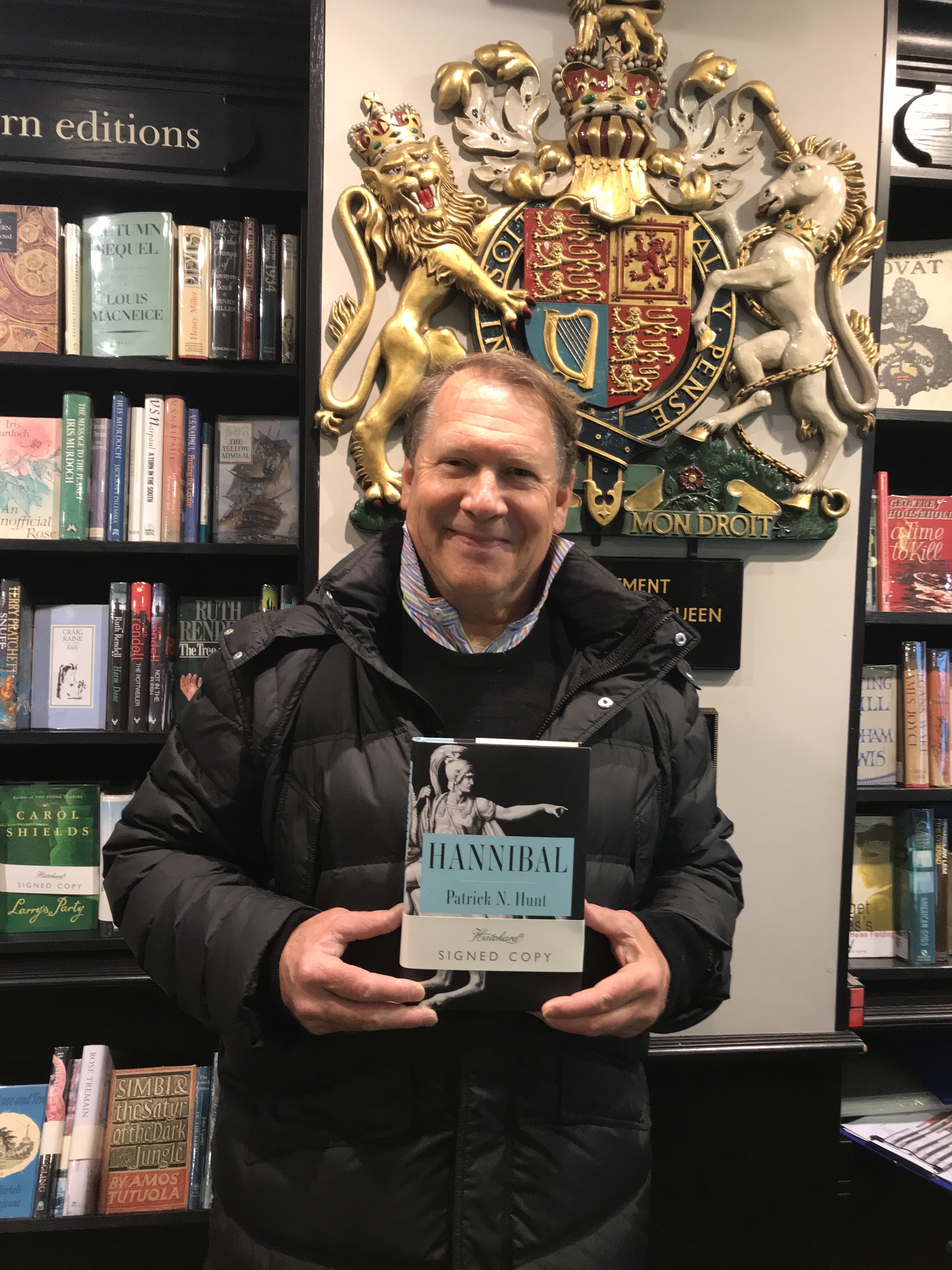Hatchards 1801 facade at 189-90 Piccadilly, London
By P. F. Sommerfeldt –
Not many booksellers can claim to have been around since 1797. Fewer have hosted so many famous authors for signings and how many have three royal patents? Hatchards was founded in Piccadilly in 1797 and has moved only once, a few doors away in 1801 to its present location at 189-90 Piccadilly, London. Is there a better, more renowned bookstore in the Anglophone world? No, and it might have something to do not only with longevity and tradition but also reputation. While some English language publishers can offer comparable vintage – for example, Witherby’s in 1740, John Murray in 1768 (Byron’s publisher but now under a different imprint) and even earlier sparring between Oxbridge printing (Oxford University Press claims it began in 1478 along with Cambridge University Press in 1534) – not many individual booksellers can document such a venerable pedigree.
Hatchards masthead
Perhaps the dire words of Heine’s lines now memorialized at the Bebelplatz, Berlin, where I saw them inscribed a few years ago, suggest why bookstores may not often last as long as other entities: “…Where they burn books, they will ultimately burn people as well…” [1]. But fortunately Hatchards is such a renowned London and even global institution, it’s likely to be around a long time if democracy and intellectual freedom of both people and the press prevail, currently seeming more likely in Britain than in the United States in 2018 where anti-intellectuals are now in far less peril than free thinkers. Maybe little has changed since the Library of Alexandria was burned four times in antiquity, at least several times deliberately. [2]
One of Hatchards’ royal patents
There is little wonder that Hatchards has been the favorite book haunt for so many writers including poets Samuel Taylor Coleridge and Lord Byron, along with authors Oscar Wilde, Aldous Huxley, Graham Greene, Beatrix Potter, John Le Carré, P. D. James, etc., since its prime location in Piccadilly has been a magnet for literati for several centuries. Hatchards parent company is now Waterstones, which has its own Piccadilly flagship stone just a few steps away at 203-206 Piccadilly as Europe’s largest bookstore.
Here are some Hatchards testimonials: “Ever since I began writing, Hatchards was where it mattered…”- John Le Carré; “…Hatchards are not only one of the most distinguished booksellers in the world and the oldest-established in London, their bookshop is one in which authors feel particularly at home…” – P. D. James.
19th c. engraving of a gentleman browsing in a bookstore
The Royal Society of Literature, founded in 1820, held its first meetings in the back room of Hatchards, when it was frequented by one of its first fellows, poet Coleridge mentioned above. Oscar Wilde was a frequent client in the 1890’s and the main table on the ground floor is known as “Oscar’s Table” because he signed so many books on it. Other factoids include that because her work was rejected elsewhere, Beatrix Potter had Peter Rabbit privately printed in 1901 and sold exclusively at Hatchards. Having starred in the filming of Somerset Maugham’s Of Human Bondage in 1934, Bette Davis came to Hatchards in 1987 for her This ‘N That book signing and all traffic stopped. [3]
Vintage books for both the collector or individual in a vintage bookseller
It must be no coincidence that one of my favorite drama-comedy films, The Man Who Invented Christmas (2017), climaxes with a flourish at an early Victorian London version of Hatchards where Dickens’ most popular tome sells out quickly at Christmas. While greatly fictionalizing the writing of Charles Dickens’ A Christmas Carol in 1843, the cinematization stars the likes of Christopher Plummer (Scrooge), Jonathan Pryce (John Dickens as spendthrift father of Charles) and Dan Stevens (Charles Dickens), who played tragic Matthew Crawley in Downton Abbey. In the film Hatchards features prominently as the climax venue where Dickens’ privately published immortal tale is exclusively sold, the precedent for Peter Rabbit in 1901. To my delight, while staying at a suite in St. Pancras Hotel en route to Paris via Eurostar, I found there is now a smaller, newer version of Hatcards since 2014 downstairs in St. Pancras Station right next door to a Fortnum and Mason boutique, just as in Piccadilly.
When I’m in Piccadilly, you can always find me at Hatchards. But while you’d hardly be expected to recognize me, you might glimpse authors browsing or signing books, incognito or not. Hatchards is the absolute plum of any book tour for those who know. Authors say that unlike libraries, probably no clunkers here – if Hatchards has your book, chances are it’s likely judged a good read.At the very least, they’re in excellent company.
Happy author Patrick Hunt signing Hannibal at Hatchards, spring, 2018
Notes:
[1] Heinrich Heine. Almansor play, 1821.
[2] Catherine Nixey. The Darkening Age: The Christian Destruction of the Classical World. Houghton Mifflin, 2018; also see Bethany Hughes, “How Christians Destroyed the Ancient World”, Review of Nixey’s The Darkening Age, New York Times, June 8, 2018.
[3] These historical anecdotes are excerpted from Hatchards Archives in “Our Favorite Novels of the Past 200 Years”, 2015.
